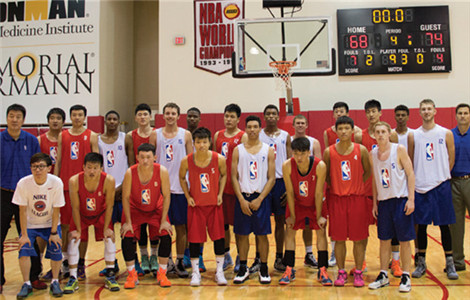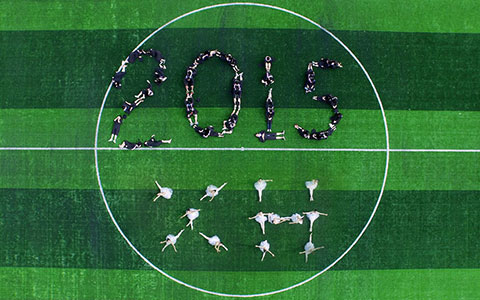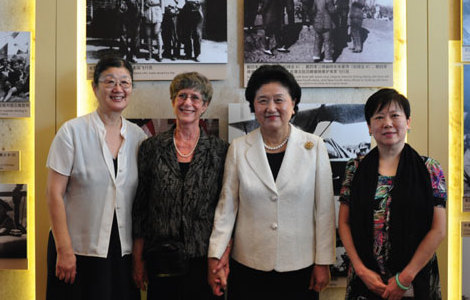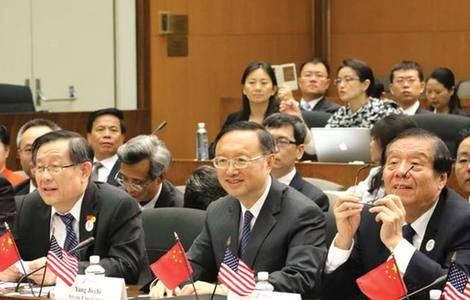Experts gather to confer on artificial intelligence
Updated: 2015-06-27 17:24
By Cheng Yingqi(chinadaily.com.cn)
|
||||||||
While the use of big data and the advancement of computer hardware brings new life into research on artificial intelligence, experts warn that people should temper their expectations.
On Saturday, more than 200 scholars and industry experts in neuroscience and computer science discussed the development of brain-inspired artificial intelligence (AI) at the Brain-Inspired Intelligence Forum in Tianjin. The event was held by the Chinese Academy of Sciences and the government of Tianjin Binhai New Area.
"Despite that the research into AI started nearly six decades ago, the booming period only began in recent years, as big data on the Internet provides plenty of materials for AI and thus promoted the comprehensiveness and accuracy of its learning," said Tan Tieniu, deputy secretary-general of the Chinese Academy of Sciences.
The field of AI research began at a conference in 1956 at Dartmouth College in the US. The field's founders believed that a machine as intelligent as a human would be made in a few decades.
Their vision was later proved an obvious underestimation of the complexity of the project and AI development entered a slow phase, which lasted until the recent boom.
Between 2009 and 2013, some $17 billion was poured into the AI sector, with over 60 percent annual growth every year, according to a report published in 2014 by quantitative analysis firm Quid.
"The development of brain science and computer science, the broad application of big data and the upgrading hardware capacity did help us make a good number of new achievements in the field of AI, yet we still should not pin too high expectations for human-like AI to be developed in the near future," Tan said.
Primarily, the difficulties of building an AI system as smart as a human comes from our limited understanding on our own brain system, according to Zheng Nanning, an academician at the Chinese Academy of Engineering.
"We are not fully aware of the structural-functional relationship of the human brain, or the math expression of memory, or the communication coding of our brains," he said. "As a result, AI research is an exciting yet formidable field of research, which is never easy for researchers."
Tan, who is an academician at the Chinese Academy of Sciences, suggested the government form an unified plan to boost research.
"An unified plan will help enhance inter-disciplinary cooperation, smooth personal exchange and the building of a public platform that is necessary for bridging neuroscience with computing science," he said.
In 2013, the EU launched a 10-year scientific study, the Human Brain Project, estimated to cost $1.33 billion. In the same year, the US started a similar venture, the BRAIN Initiative.
In this year's "two sessions" in March, Baidu Chairman Robin Li, also a CPPCC member, put forward a proposal for China's brain research plan. Experts from Saturday's conference said that such projects are already being studied.
- Experts gather to confer on artificial intelligence
- Publicity campaign aims to raise sovereignty awareness over Diaoyu Islands
- 8-year-old bullied boy to receive 90,000 yuan in compensation
- A glimpse of a female drug rehab center
- Senior Tibet official under graft probe
- Lawyer in student poison case hands in seven petitions
Most Viewed
Editor's Picks

|

|

|

|

|

|
Today's Top News
Nation can meet growth challenges, premier says
China mulling 'green finance' to tackle environmental blues
Top leadership studies anticorruption ahead of CPC anniversary
Key events in the history of US gay rights
China opposes US
defense bill
More people around world like China, survey finds
Victims of Charleston
massacre mourned
US police fatally shoot unarmed black man in domestic dispute
US Weekly

|

|















